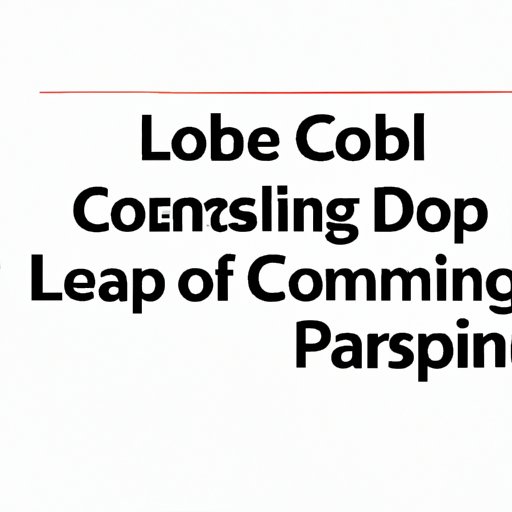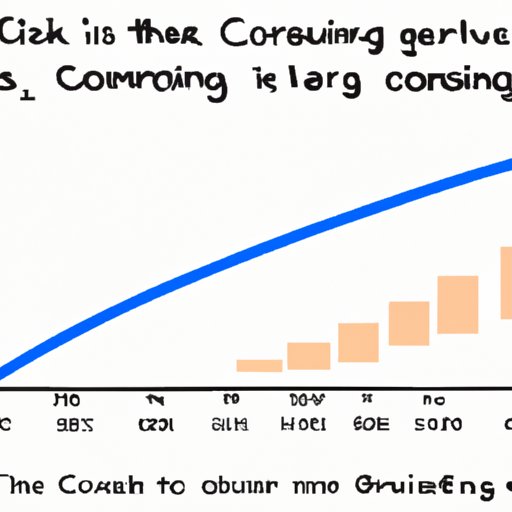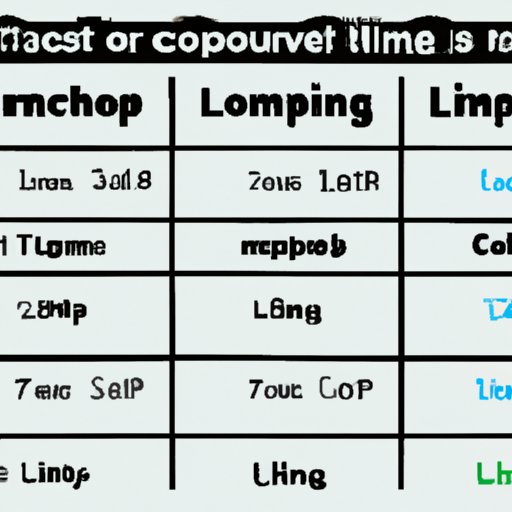Introduction
Computer programming is the process of writing instructions for a computer or other device to execute. It involves creating algorithms, debugging code, and testing software applications. Computer programming is an essential skill in the modern world, as it is used in nearly every field from web development to data science. While it can be a difficult process, learning computer programming is an achievable goal with the right amount of time and dedication.
Analyzing the Different Levels of Computer Programming and How Long It Takes to Learn Each One
Computer programming is divided into three main levels: beginner, intermediate, and advanced. The amount of time it takes to learn each level depends on the individual and their background knowledge. However, general guidelines can be used to estimate how long it may take to learn each level.
Beginner Level
At the beginner level, learners are typically exposed to basic concepts such as variables, functions, and loops. They also learn about the syntax of different programming languages and how to use them to solve simple problems. Depending on the individual’s background knowledge, it typically takes around six months to one year to reach a comfortable level of proficiency at this stage.
Intermediate Level
At the intermediate level, learners are expected to have a solid understanding of the basics and be able to write more complex programs. They should also be familiar with object-oriented programming and be able to debug code efficiently. It usually takes between one to two years to reach this level, depending on the individual’s commitment and learning resources.
Advanced Level
At the advanced level, learners are expected to have an in-depth knowledge of the programming languages they are using and be able to develop complex applications. They should also be able to use advanced techniques such as artificial intelligence and machine learning. It typically takes more than two years to reach this stage, depending on the individual’s dedication and experience.
Examining the Factors That Affect Learning Computer Programming and Estimating How Long it May Take
The amount of time it takes to learn computer programming is affected by several factors. These include the individual’s time commitment, background knowledge, and access to learning resources. Let’s take a closer look at each factor and how it affects the length of time needed to learn computer programming.
Time Commitment
The amount of time an individual is willing to commit to learning computer programming is a major factor in determining how long it will take. Those who are able to devote more time to studying and practicing are likely to progress faster than those who only dedicate a few hours per week. Generally speaking, it takes around 10-15 hours of study and practice per week to make steady progress.
Background Knowledge
Another important factor to consider is an individual’s background knowledge. Those with prior experience in coding or mathematics are likely to progress faster than those without any prior knowledge. Additionally, having a basic understanding of computers and technology can also speed up the learning process.
Learning Resources
Having access to quality learning resources is also essential when learning computer programming. Learners should look for tutorials, books, online courses, and other materials that provide detailed explanations and examples. Additionally, joining communities of fellow coders can help individuals stay motivated and receive feedback on their work.

A Comprehensive Guide to Learning Computer Programming and Determining How Long it Will Take
To effectively learn computer programming, it’s important to have a comprehensive plan. Here are some tips for setting realistic goals and making steady progress:
Setting Goals
It’s important to set realistic goals when learning computer programming. Start by setting short-term goals such as completing a certain number of tutorials or mastering a particular concept. Having smaller, achievable goals will help keep you motivated and focused on making progress.
Choosing a Programming Language
Choosing a programming language to focus on is another important step. Consider the type of projects you want to create and the platforms you want to work with. This will help narrow down your options and make it easier to find relevant learning resources.
Acquiring Relevant Skills
In addition to mastering the syntax of the programming language, it’s also important to acquire other skills such as problem solving, debugging, and testing. These skills are essential for creating successful applications and should be developed alongside learning the language itself.
Practicing Regularly
Finally, it’s important to practice regularly. Dedicating a few hours every day to coding will help you make steady progress and stay motivated. Additionally, working on personal projects is a great way to apply the concepts you’ve learned and gain real-world experience.
Exploring Popular Programming Languages and How Long it Takes to Master Each One
There are many popular programming languages, each with its own strengths and weaknesses. Here are a few of the most popular languages and how long it typically takes to master them:
Python
Python is a versatile, high-level language used for a wide range of applications. It has a simple syntax and is easy to learn. With regular practice and dedication, it typically takes around one to two years to become proficient in Python.
Java
Java is a widely-used programming language used for developing mobile apps, web applications, and enterprise software. It has a steep learning curve but with consistent practice, it typically takes around two to three years to become proficient.
C++
C++ is a powerful language used for developing games and high-performance applications. It has a complex syntax and requires a lot of dedication to master. It usually takes around three to four years to become proficient in C++.

Charting the Progress of Learning Computer Programming and Calculating How Long it Will Take
Tracking your progress is an important part of learning computer programming. It helps you measure your progress and identify areas that need improvement. Additionally, it allows you to adjust your goals and plan accordingly.
Tracking Your Progress
To track your progress, create a list of tasks you want to complete and mark them off as you go. Additionally, you can use tools such as a spreadsheet or project management app to keep track of your progress. This will help you stay organized and motivated as you progress.
Knowing When You’re Ready
Once you’ve mastered the basics and have a solid understanding of the language, you should be ready to start building applications. To gauge your readiness, try completing small projects such as a calculator or a game. This will give you a better idea of where you stand and if you’re ready to tackle larger projects.

Comparing the Length of Time Needed to Learn Computer Programming in Various Fields
The amount of time needed to learn computer programming varies depending on the field. Here are some of the most common fields and how long it typically takes to become proficient in each one:
Web Development
Web development involves creating websites and web applications. To become proficient in this field, it typically takes between one to two years. This includes mastering HTML, CSS, JavaScript, and any other relevant technologies.
Mobile App Development
Mobile app development involves creating applications for mobile devices. It typically takes around two to three years to become proficient in this field. This includes mastering the relevant language such as Java or Swift and any other frameworks.
Data Science
Data science involves collecting, analyzing, and interpreting data. It typically takes around three to four years to become proficient in this field. This includes mastering programming languages such as Python or R and any other relevant technologies.
Conclusion
Learning computer programming is a time-consuming process that requires dedication and hard work. It is divided into three levels: beginner, intermediate, and advanced. The amount of time it takes to learn each level depends on several factors such as time commitment, background knowledge, and access to learning resources. Additionally, the amount of time needed to master a particular language varies depending on the field. Ultimately, the length of time needed to learn computer programming depends on the individual and their commitment to the process.
Recap of the Main Points
Computer programming is divided into three levels: beginner, intermediate, and advanced. The amount of time it takes to learn each level depends on several factors such as time commitment, background knowledge, and access to learning resources. Additionally, the amount of time needed to master a particular language varies depending on the field. Ultimately, the length of time needed to learn computer programming depends on the individual and their commitment to the process.
Final Thoughts
Learning computer programming can be a difficult process, but it is achievable with the right amount of time and dedication. Setting realistic goals, tracking your progress, and having access to quality learning resources can help you make steady progress and eventually become proficient in the language of your choice.
(Note: Is this article not meeting your expectations? Do you have knowledge or insights to share? Unlock new opportunities and expand your reach by joining our authors team. Click Registration to join us and share your expertise with our readers.)
